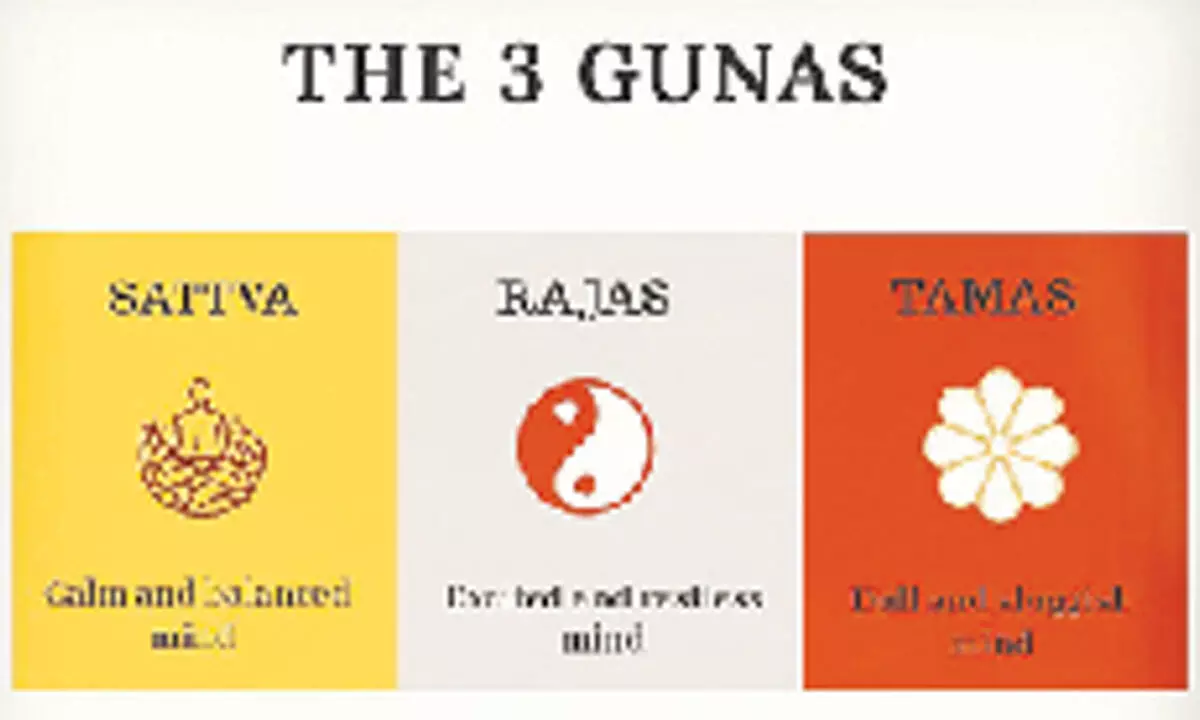The Ethics of Food

Analysis of nature by Sankhya philosophy is amazing. Vedanta has borrowed a lot from sage Kapila’s examination of the three gunas – sattva, rajas and tamas, which constitute everything in the world.
Analysis of nature by Sankhya philosophy is amazing. Vedanta has borrowed a lot from sage Kapila’s examination of the three gunas – sattva, rajas and tamas, which constitute everything in the world. They are the building blocks of the body and mind in all beings. They also constitute our food. They mix in different proportions to make different bodies and minds and determine our behaviour in all our interactions.
Ayurveda too has borrowed a lot fromSankhya. It analyzes all the above, including food. Food is what makes the body and mind. Incidentally, we may note that ayurveda does not denigrate meat eating. Different types of people need different types of food. A fighter may need food which builds the body, whereas a spiritual seeker needs food which keeps the body and mind calm.
Ayurveda, the science of health, and dharma shastra, the science of ethics, are integrated. We see this illustrated in the Upanishads and in the Gita. The Upanishads say that the mind is a product of the food. If the food is pure, the mind is pure, and when the mind is pure, it is in a fit condition to contemplate Reality. Here we are not judgmental about what is purity of food, but we are talking about what food a seeker needs. The Gita tells how the mix of the three gunas decides the type of gods we choose, the type of our worship we do, the type of friends we have and even the type of food we like. The verses in the Gita (17-7,8,9) describe the three types of people and the three types of food they like. The sattvic persons like foods which increase cheerfulness, calmness of mind, endurance, nervous equilibrium, and have no adverse after-effects. A rajasic person likes foods which are strong, bitter, pungent, which satisfy the palate at the time of eating, but may cause restlessness and disorientation of mind, generate excitement, and ill health in the long run. They do not keep the mind in a fit condition to contemplate. A tamasic person is too lazy to bother about the nature and freshness of food, whether it is properly cooked, and he is unmindful of the aftereffects. Such food is neither good while eating nor later.
In addition to the above, our texts on ethics talk of anna-dosha, the defective food. The Mahabharata has an interesting passage on this. When Krishna goes as a messenger to ask for the share of the kingdom due to Pandavas, he does not take food in the house of Duryodhana. Instead, he takes food from Vidura, a well-wisher of all. When asked, he tells the reasons to Duryodhana, a person who has snatched the kingdom from Pandavas and refuses to give even an inch of land to them. It would mean accepting food from an unethical person. The sins of a sinner reside in the food he gives, our texts on ethics say. In the daily prayers of the devout, there are prayers requesting to ward off any sin unknowingly acquired by accepting food from a sinner.
The Hindu priests who visit our houses to perform vratam etc., are mandated to do japa of the sacred Gayatri mantra when they go home. This too, is a penance they perform to ward off any sin in case they had received food or money from a wrong person. Honest food, even by selling meat is not a sin, as we see in the case of the virtuous meat seller in the Mahabharata.
But hunger is a fire which blinds us to the propriety of the nature of food or the nature of the giver. This fire is called Vaiswanara, the fire which pervades all living beings in the universe, and which clamours for food. Unknowingly, we might take food from a sinner or from a bad source. For this, our texts say that when we sit for our meal, we have to remember this fire, and offer the first five pinches of food as an oblation into that fire. This approach makes the act of having a meal into a yajna, a sacred ritual. A tough life of constant self-correction, which we have forgotten.
(The writer is a former DGP, Andhra Pradesh)









